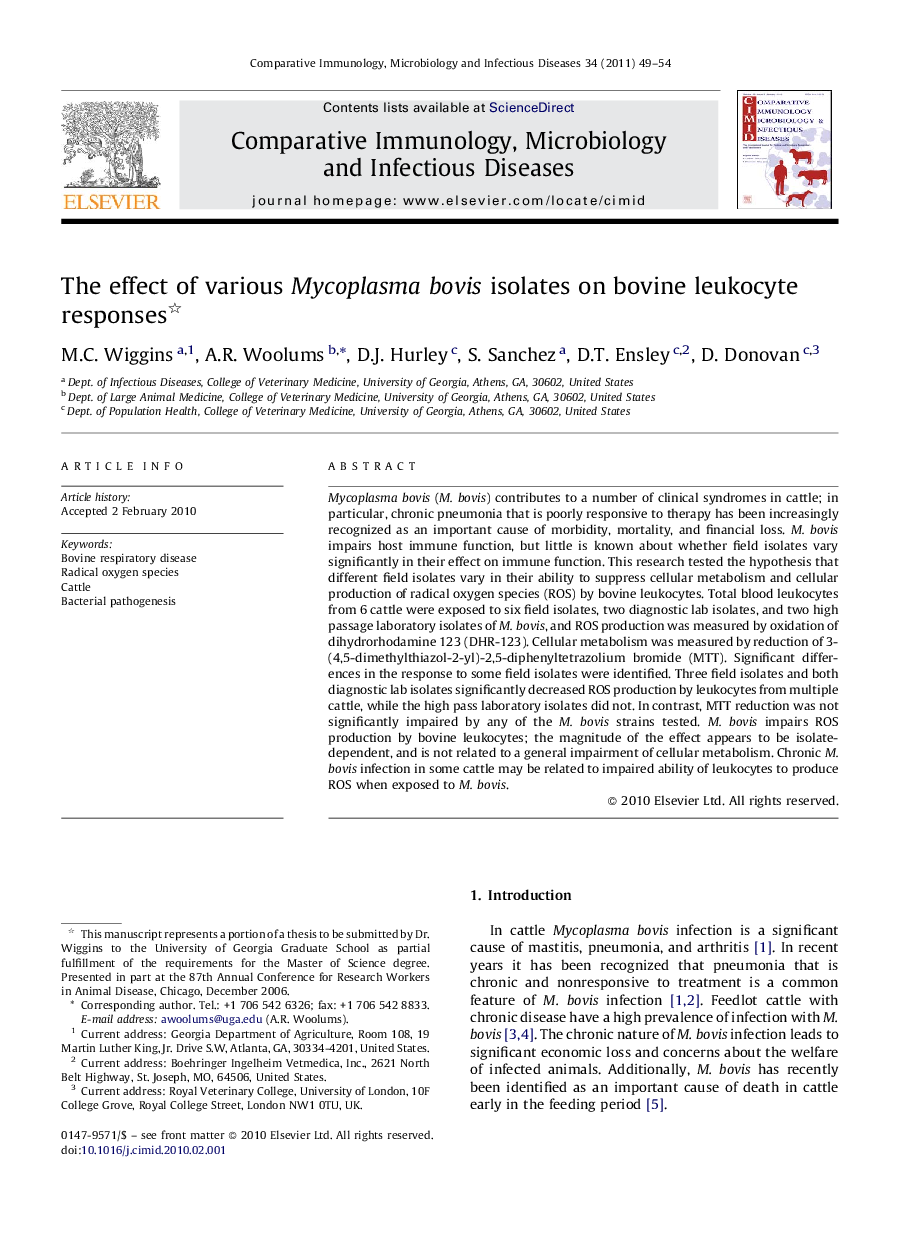| Article ID | Journal | Published Year | Pages | File Type |
|---|---|---|---|---|
| 2428499 | Comparative Immunology, Microbiology and Infectious Diseases | 2011 | 6 Pages |
Mycoplasma bovis (M. bovis) contributes to a number of clinical syndromes in cattle; in particular, chronic pneumonia that is poorly responsive to therapy has been increasingly recognized as an important cause of morbidity, mortality, and financial loss. M. bovis impairs host immune function, but little is known about whether field isolates vary significantly in their effect on immune function. This research tested the hypothesis that different field isolates vary in their ability to suppress cellular metabolism and cellular production of radical oxygen species (ROS) by bovine leukocytes. Total blood leukocytes from 6 cattle were exposed to six field isolates, two diagnostic lab isolates, and two high passage laboratory isolates of M. bovis, and ROS production was measured by oxidation of dihydrorhodamine 123 (DHR-123). Cellular metabolism was measured by reduction of 3-(4,5-dimethylthiazol-2-yl)-2,5-diphenyltetrazolium bromide (MTT). Significant differences in the response to some field isolates were identified. Three field isolates and both diagnostic lab isolates significantly decreased ROS production by leukocytes from multiple cattle, while the high pass laboratory isolates did not. In contrast, MTT reduction was not significantly impaired by any of the M. bovis strains tested. M. bovis impairs ROS production by bovine leukocytes; the magnitude of the effect appears to be isolate-dependent, and is not related to a general impairment of cellular metabolism. Chronic M. bovis infection in some cattle may be related to impaired ability of leukocytes to produce ROS when exposed to M. bovis.
